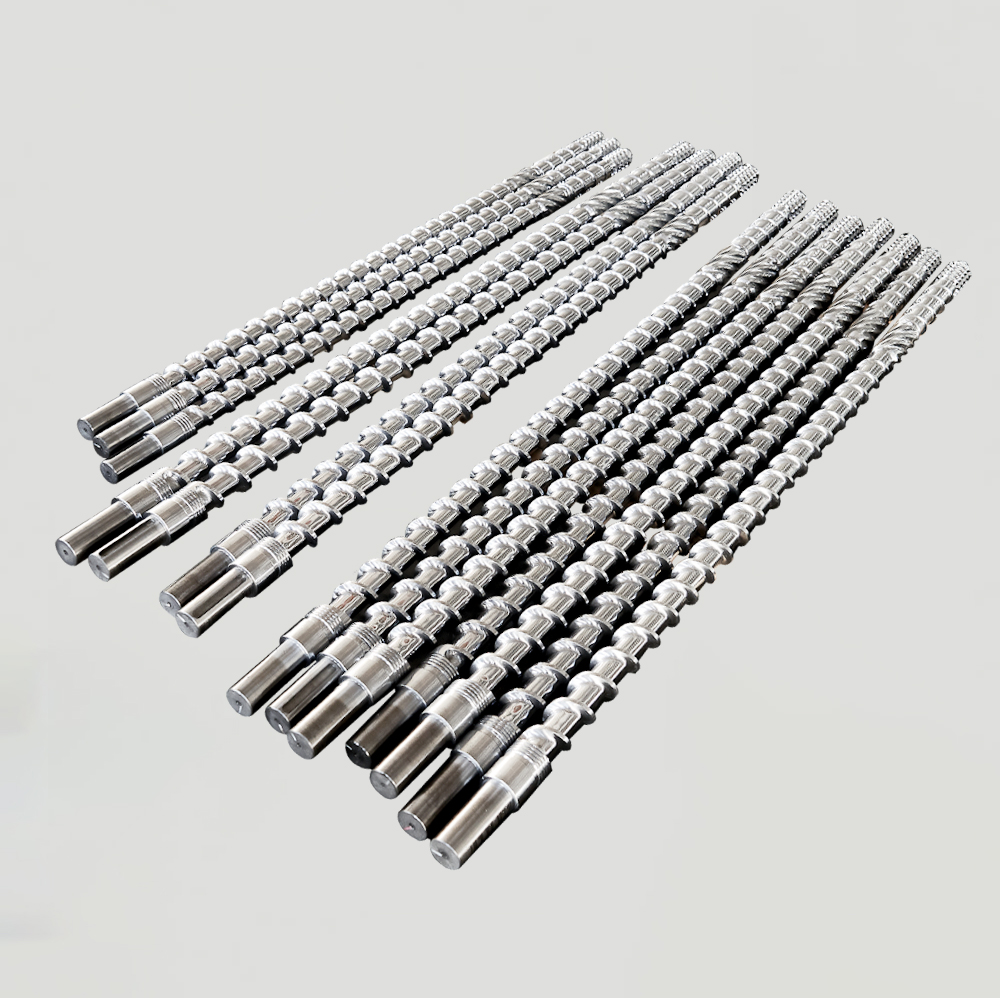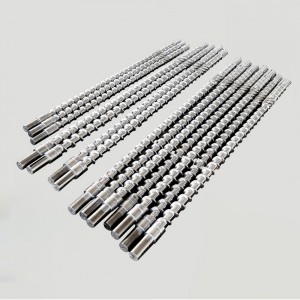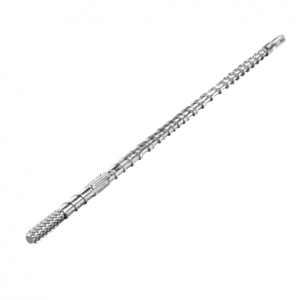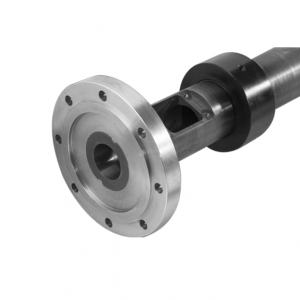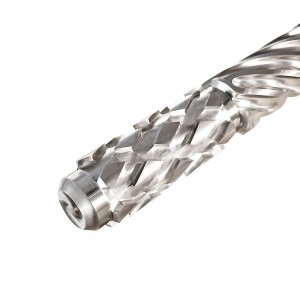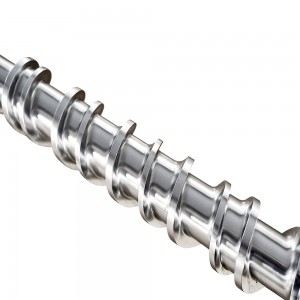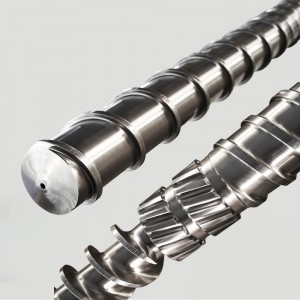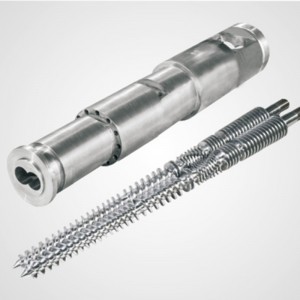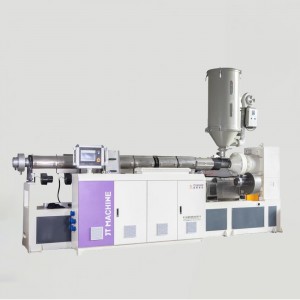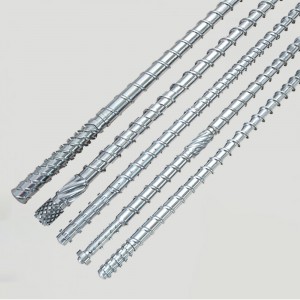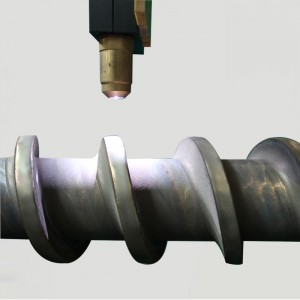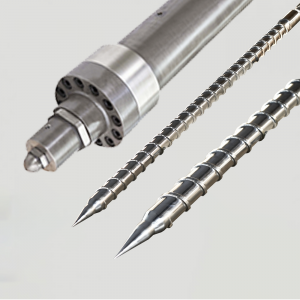High quality nitrided screw and barrel

Nitriding Process: Nitriding is a surface hardening treatment in which nitrogen is diffused into the material's surface to form a hard nitride layer. This process usually involves heating the screw barrel in a controlled atmosphere of ammonia gas at high temperatures, typically between 500°C and 550°C (932°F to 1022°F).
Nitride Layer: The nitriding process forms a hard surface layer on the screw barrel typically ranging from 0.1 mm to 0.4 mm in thickness. This layer consists of nitrides, mainly gamma prime iron nitride (Fe4N).
Enhanced Wear Resistance: Nitriding significantly increases the wear resistance of the screw barrel, which is crucial in extrusion processes where the screw and barrel are subjected to abrasive wear from the polymer and additives. The hard nitride layer helps to extend the service life of the screw barrel, reducing downtime and maintenance costs.
Improved Corrosion Resistance: The nitride layer also provides improved resistance to corrosion from the molten polymer and other corrosive elements present during the extrusion process. This helps to ensure the longevity of the screw barrel and maintain consistent performance over time.
Reduced Friction: The smooth and hard nitride layer reduces friction between the screw and barrel, resulting in less heat generation and better energy efficiency during the extrusion process. This can translate to lower energy consumption and improved overall productivity.

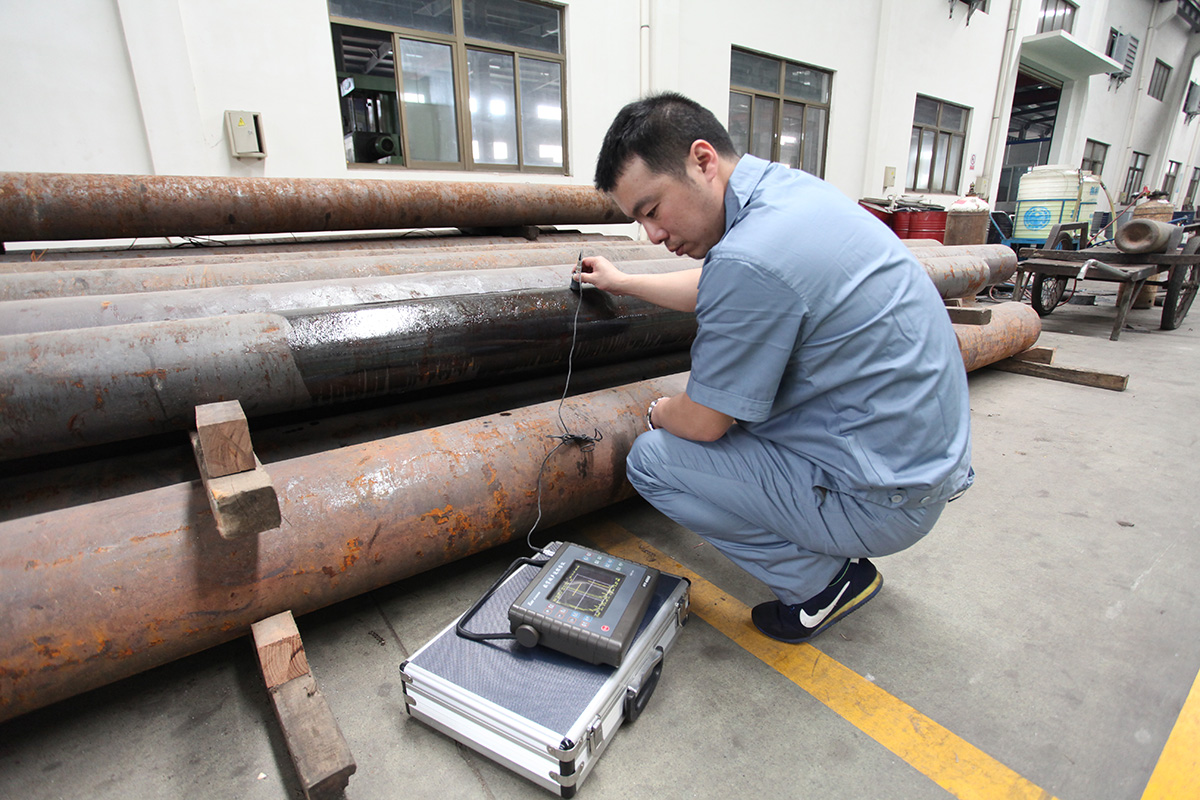

Better Heat Transfer: Nitriding improves the thermal conductivity of the screw barrel, allowing for efficient heat transfer during the melting and mixing of the polymer. This helps to achieve more consistent and reliable melting, leading to better product quality.
Less Plugging and Melting Variations: With enhanced wear resistance and improved surface properties, a nitrided screw barrel is less prone to material buildup, plugging, and variations in melting. This results in more stable extrusion processes, reduced downtime, and improved product consistency.
It's important to note that the specific advantages of a nitrided screw barrel may vary depending on the application, material being processed, and the process conditions. Consulting with a reputable screw barrel manufacturer or supplier can help determine if a nitrided screw barrel is the most suitable choice for your specific extrusion needs.

